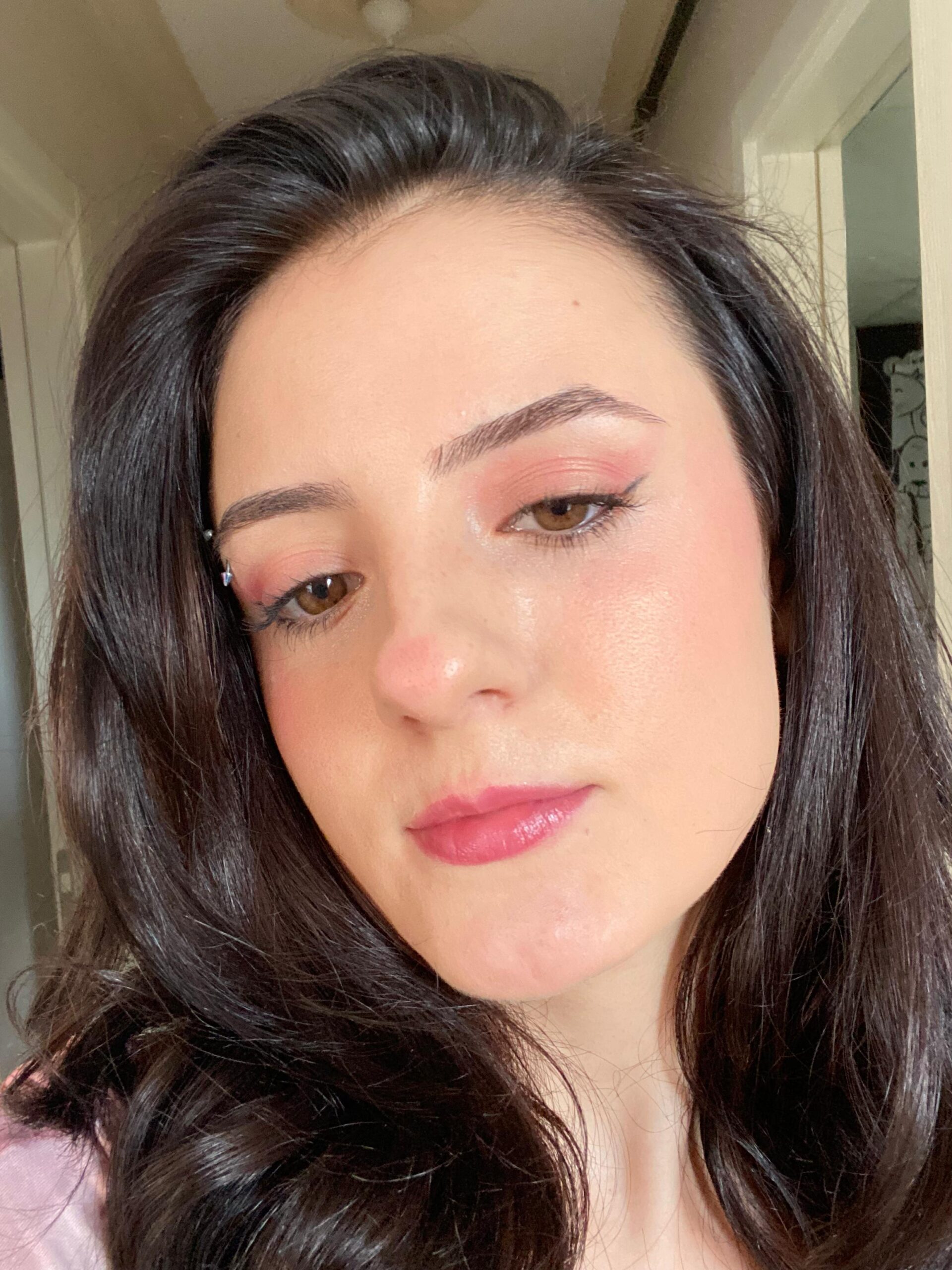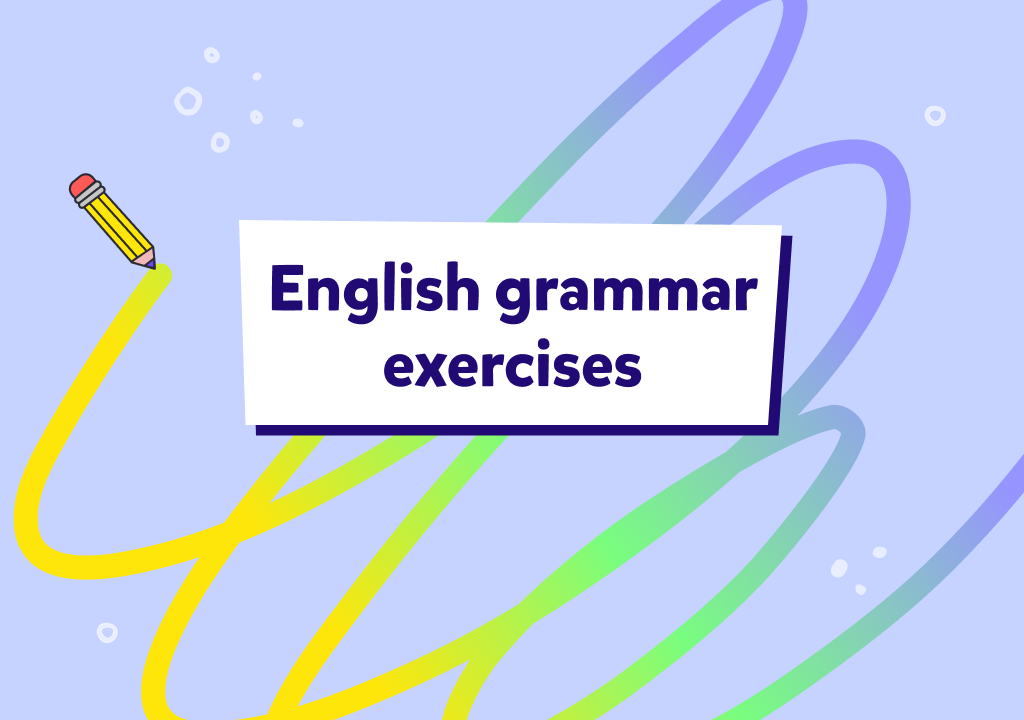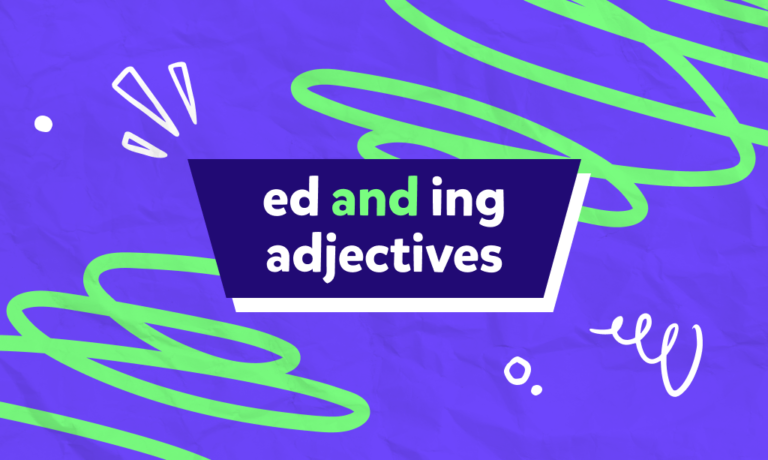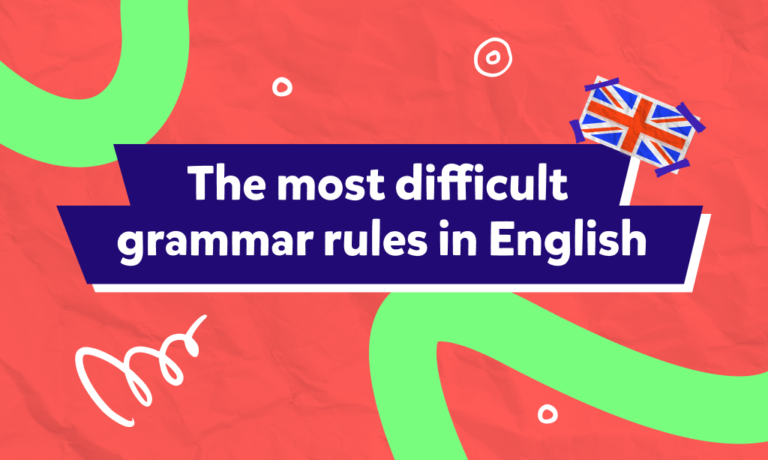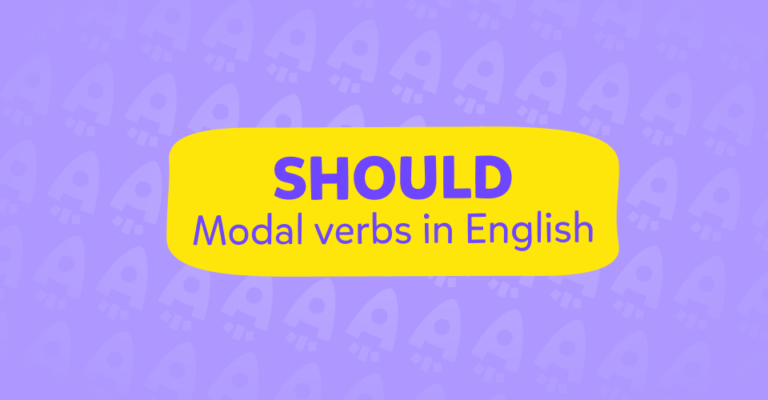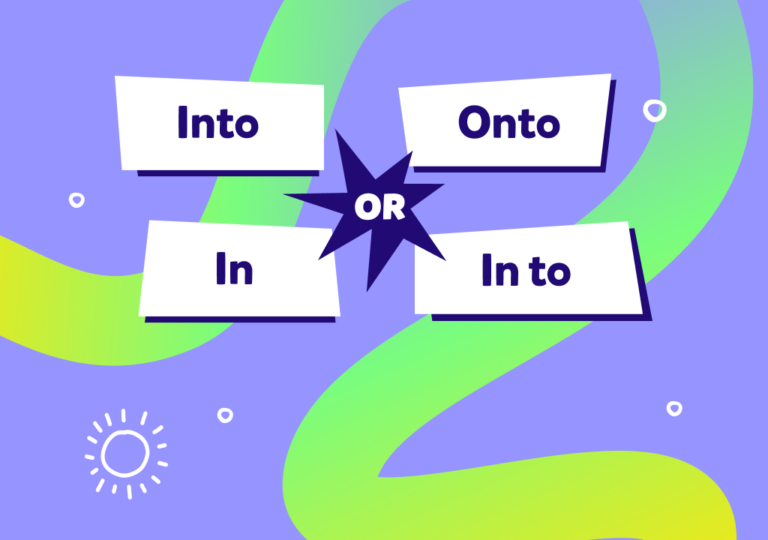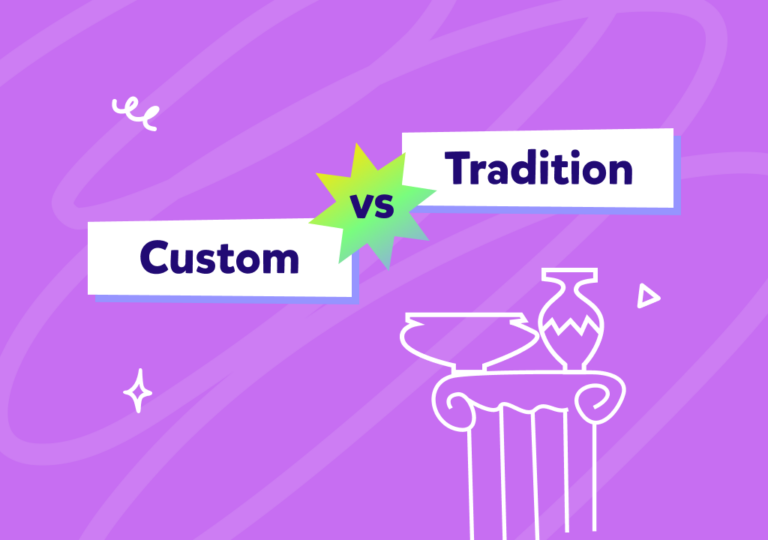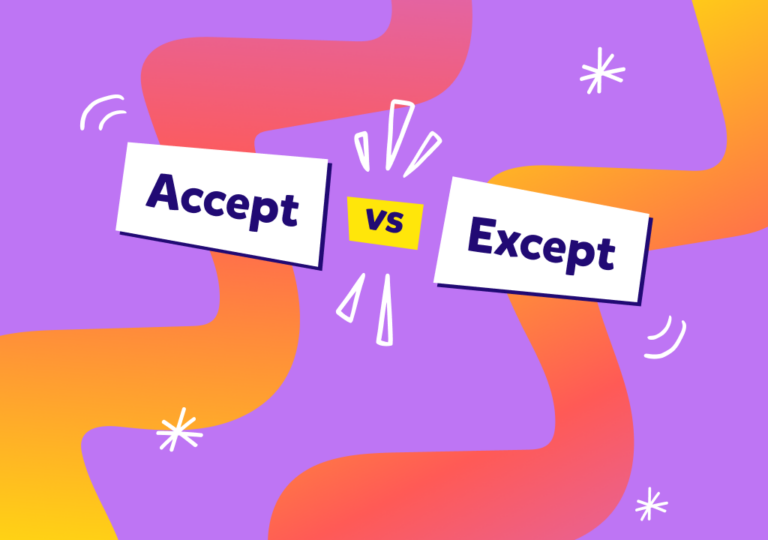Yazımızda erken yaşta dil öğrenmenin faydalarından, sağladığı fırsatlardan ve yabancı dil öğrenmenin yollarından bahsettik.
10 farklı konuda dilbilginizi sınayabileceğiniz İngilizce gramer testleri!
- If conditionals testi
- Been ve gone testi
- Reported speech
- “For” ve to” testi
- Must/have to testi
- “The” testi
- Derece zarfları
- “Going to” ve “will” testi
- S takısı testi
- Whether/if testi
- Who’s/whose testi
- Sıkça sorulan sorular
- Novakid’le tanışın!
- İngilizce’de conditionals (if cümleleri) koşula bağlı durumları ifade eder; zero’dan mixed conditional’a kadar beş farklı tür bulunur.
- “Been” gidip dönmeyi, deneyimi veya tamamlanmış bir eylemi; “gone” ise hâlâ gidilmiş yerde olmayı ifade eder.
- Reported speech’te (dolaylı anlatım) zamanlar bir adım geri çekilir; yes/no soruları if/whether, wh- soruları ise kendi soru kelimesiyle aktarılır.
- “For” amaç ve faydayı, “to” yön, hedef ve alıcıyı belirtir.
- “Must” ve “have to”, zorunluluk bildirir; küçük anlam farklarıyla farklı bağlamlarda kullanılır.
- “The” belirli isimler, evrende tek olan varlıklar ve superlative ifadelerde yer alır; “a/an” ise belirsiz isimlerde kullanılır.
- Derece zarfları (very, too, enough, hardly, quite) bir eylemin veya özelliğin derecesini belirtir.
- “Going to” plan ve kesinlik, “will” ise anlık karar ve tahminlerde tercih edilir.
- “-s” takısı çoğul isimlerde, üçüncü tekil kişi fiillerinde ve iyelik bildirmek için kullanılır.
- “If” koşul cümlelerinde, “whether” ise özellikle dolaylı sorularda kullanılır.
- “Whose” sahiplik belirtirken, who’s “who is / who has” kısaltmasıdır.
İngilizce öğrenirken en çok zorlanılan noktalardan biri, benzer görünen gramer konularını doğru ayırt edebilmek. Bu yazımızda, 10 farklı konuda hazırlanmış kısa açıklamalar ve testlerle hem bilginizi ölçebilir hem de eksik olduğunuz noktaları fark ederek kendinizi geliştirebilirsiniz.
Her bölümde önce konuyu basit bir şekilde öğrenip ardından soruları çözerek öğrendiklerinizi hemen pekiştirme şansı bulacaksınız!
If conditionals testi
İngilizce’de conditional (koşul) cümleleri, bir durumun başka bir duruma bağlı olduğunu ifade eder ve genellikle “if” bağlacıyla kurulur. İngilizce’de sıfırdan karma yapıya kadar toplam beş conditional türü vardır ve her biri, koşulun zamanı ve gerçeklik düzeyiyle ilişkilidir. Her conditional yapısı, farklı bir gramer kipiyle kurulur: present simple, past simple, past perfect ve “would” gibi yardımcı fiillerle desteklenir. Testi çözerek bu konuyu pekiştirelim:
- If I ___ a superhero, I would fly to school.
a) am
b) will be
c) were
- If she studies, she ___ the test.
a) passed
b) would pass
c) will pass
- If water reaches 100°C, it ___ .
a) would boil
b) will boil
c) boils
- If I had woken up earlier, I ___ the bus.
a) caught
b) would have caught
c) catch
- If they ___ more carefully, they wouldn’t have broken the glass.
a) walked
b) had walked
c) were walking
- If you ___ chocolate in the sun, it melts.
a) will put
b) put
c) puts
- If I win the prize, I ___ a new bike.
a) would buy
b) will buy
c) bought
- If I ___ a car, I would drive to school.
a) had
b) have
c) will have
- If he had listened, he ___ the answer.
a) knows
b) would have known
c) would know
- If I had studied medicine, I ___ a doctor now.
a) will be
b) would have been
c) would be
Answers 
- c) were
- c) will pass
- c) boils
- b) would have caught
- b) had walked
- b) put
- b) will buy
- a) had
- b) would have known
- c) would be
Been ve gone testi
“Been”, bir yere gidip dönmüş olmayı ifade eder, deneyim veya tamamlanmış seyahat vurgusu taşır. “Gone” ise bir yere gidilmiş ama kişi hâlâ oradadır, henüz dönmemiştir. “Been”, aynı zamanda “to be” fiilinin üçüncü hali olarak “olmak” anlamında da kullanılır. “Gone”, “to go” fiilinin üçüncü hali olup gitme eyleminin sürmekte olduğunu anlatır. İşte “been” ve “gone” testi:
- My brother has ______ to Japan. He’ll be back next week.
a) gone
b) been - I’ve ______ to that cafe before. Their coffee is amazing.
a) gone
b) been - + Where’s Sarah? – She has ______ to the gym.
a) gone
b) been - They had already ______ to the cinema when we called.
a) gone
b) been - We’ve never ______ to that beach. Let’s go this weekend!
a) gone
b) been - James isn’t home. He’s ______ out with his friends.
a) been
b) gone - I’ve ______ there many times. It’s my favorite place.
a) gone
b) been - She has ______ to the post office but will be back soon.
a) been
b) gone - Have you ever ______ to Disneyland?
a) been
b) gone - My parents have ______ on holiday. They’ll return next Friday.
a) gone
b) been
Answers 
- a) gone
- b) been
- a) gone
- a) gone
- b) been
- b) gone
- b) been
- b) gone
- a) been
- a) gone
Reported speech
İngilizcede iki temel aktarım biçimi vardır: doğrudan (direct speech) ve dolaylı anlatım (reported speech). Doğrudan anlatımda sözler tırnak içinde, değiştirilmeden aktarılır; dolaylı anlatımda ise zamanlar, zamirler ve zaman zarfları bağlama göre değişir.
Reported speech’te fiil zamanları genellikle bir adım geriye çekilir (ör. will → would, present simple → past simple). Dolaylı anlatımda evet-hayır soruları aktarılırken if/whether, wh- soruları aktarılırken soru kelimesi ve yüklemin yeri değiştirilir. Reported speech testini çözerek bilgilerinizi tazeleyelim:
- Aşağıdaki cümlelerden hangisi dolaylı anlatımdır?
a) “I will call you later.” she said.
b) He asked where the nearest bus stop was.
c) “Where is the nearest bus stop?” he asked. - Aşağıdaki cümlelerden hangisi doğrudan anlatımdır?
a) “Where is the nearest bus stop?” he asked.
b) She asked if I was coming with them.
c) He apologized for being late. - Doğrudan anlatımı “She said, ‘I am studying English.’’” olan cümleyi dolaylı anlatıma nasıl çeviririz?
a) She said that she is studying English.
b) She said that she was studying English.
c) She said that she studies English. - “‘They are coming to visit us next week.’ Tom said.” cümlesini dolaylı anlatıma nasıl çeviririz?
a) Tom said that they are coming to visit us next week.
b) Tom said that they will come to visit us next week.
c) Tom said that they were coming to visit us the following week. - Aşağıdaki cümleyi dolaylı anlatımla aktarırken boşluk olan yere ne gelmelidir?
“I have just finished my work.” he said.
He said that he ___ his work.
a) was just finishing
b) just finished
c) had just finished - “She said that she was studying English.” cümlesi doğrudan anlatımda nasıl kurulmuştur?
a) I am studying English.
b) I was studying English.
c) I had studied English. - “He asked where the nearest bus stop was.” cümlesini doğrudan anlatımla nasıl söyleyebiliriz?
a) “Where is the nearest bus stop?” he asked.
b) “Where has the nearest bus stop been?” he asked.
c) “Where was the nearest bus stop?” he asked. - “Tom said that they were coming to visit us the following week.” cümlesini doğrudan anlatıma nasıl çeviririz?
a) “We are coming to visit you next week.” Tom said.
b) “We were coming to visit you next week.” Tom said.
c) “We will come to visit you next week.” Tom said. - Aşağıdaki cümleyi dolaylı anlatımla aktarırken boşluk olan yere ne gelmelidir?
“I have been waiting for you for an hour,” she said.
She said that she ___ for me for an hour.
a) waited
b) has been waiting
c) had been waiting - “He politely asked me to bring him a glass of water.” cümlesini doğrudan anlatıma nasıl çeviririz?
a) “Please bring me a glass of water.” he politely asked.
b) “Please bring me a glass of water.” he asked to bring.
c) “Please bring me a glass of water.” he asked politely.
Answers 
- b) He asked where the nearest bus stop was.
- a) “Where is the nearest bus stop?” he asked.
- b) She said that she was studying English.
- c) Tom said that they were coming to visit us the following week.
- c) had just finished
- b) I was studying English.
- a) “Where is the nearest bus stop?” he asked.
- a) “We are coming to visit you next week.” Tom said.
- c) had been waiting
- c) “Please bring me a glass of water.” he asked politely.
“For” ve to” testi
“To”, yön, hedef veya alıcı belirtmek için; “for” ise fayda, amaç veya temsil için kullanılır. “To” genellikle yalın fiille (to + infinitive), “for” ise isim ya da -ing takılı fiille (for + noun/-ing) kullanılır. “Looking forward to” gibi kalıplar, fiil yapısı açısından özel kullanımlara sahiptir ve ezberlenmesi gerekir. Haydi şimdi bu konuyu test çözerek pekiştirelim:
- I gave the keys ___ my brother.
a) to
b) for - This cake is ___ you!
a) for
b) to - He’s going ___ the library after school.
a) to
b) for - This brush is ___ painting walls.
a) to
b) for - She sent a letter ___ her grandmother.
a) for
b) to - They worked extra hours ___ their team.
a) for
b) to - We’re looking forward ___ meeting you.
a) to
b) for - Can you explain this ___ me?
a) to
b) for - I made lunch ___ the kids.
a) for
b) to - I want ___ learn more about this topic.
a) for
b) to
Answers 
- a) to
- a) for
- a) to
- b) for
- b) to
- a) for
- a) to
- a) to
- a) for
- b) to
Must/have to testi
İngilizcede gereklilik, zorunluluk ve izin belirtmek için birçok farklı modal verb kullanıyoruz. Bu modal verbler arasında bulunan “have to” ve “must” da İngilizcede sık sık gördüğümüz, birbirinin yerine kullanılabilen ama ufak farklılıklar içeren yapılar olarak karşımıza çıkıyor.
“Must” fiilini geçmiş zamanda kullanırken eğer zorunluluk anlamı katmak istiyorsanız “had to” demelisiniz. “Must” ve “have” to farkını daha iyi öğrenmek için testi çözebilirsiniz:
- I feel tired, I ___ give a break.
a) must
b) have to
c) has to - ___ John ___ leave home right now?
a) Doesn’t / have to
b) Must / –
c) Does / has to - She has been studying all day. She ___ be really tired.
a) must
b) has to
c) have to - They are perfect at their job. They ___ get any better than this.
a) don’t have to
b) mustn’t
c) doesn’t have to - You ___ eat that chocolate if you’re allergic.
a) mustn’t
b) has to
c) have to - He is so disciplined. He ___ be working out every morning.
a) doesn’t have to
b) has to
c) must - You ___ wear a tie to the event; it’s not formal.
a) mustn’t
b) doesn’t have to
c) don’t have to - Beyza ___ work hard if she wants to pass that exam.
a) had to
b) has to
c) have to - If you are so good at basketball, you ___ be very athletic.
a) has to
b) have to
c) must - You ___ worry about the details; I’ve taken care of everything.
a) doesn’t have to
b) mustn’t
c) don’t have to
Answers 
- a) must
- b) Must / –
- a) must
- a) don’t have to
- a) mustn’t
- c) must
- c) don’t have to
- b) has to
- c) must
- c) don’t have to
“The” testi
“The” artikeli, konuşan ve dinleyenin hangi nesneden söz ettiğini bildiği “belirli” isimler için kullanılır; daha önce bahsedilen varlıklar, evrende tek olan nesneler (the sun, the moon) ve superlative ifadelerde (“the best”, “the first”) mutlaka yer alır.
“A” ve “an” belirsiz artikellerdir; ilk kez bahsedilen veya genel kavramlarda (“a car”, “an apple”) nesnenin belirli olmayan bir örneğini gösterir. “The” testini çözmeye hazır mısınız?
- I saw ___ cat on the roof.
a) the
b) a
c) an - ___ moon looks beautiful tonight.
a) The
b) A
c) An - She plays ___ guitar every day.
a) An
b) The
c) A - They visited ___ United States last summer.
a) An
b) The
c) A - ___ sun rises in the east.
a) An
b) A
c) The - This is ___ best movie I’ve ever watched!
a) The
b) An
c) A - I found ___ book you were looking for.
a) The
b) A
c) An - We had dinner at ___ Grand Hotel.
a) an
b) the
c) a - He’s ___ doctor we talked about.
a) the
b) an
c) a - ___ Amazon River is the second longest river in the world.
a) An
b) The
c) A
Answers 
- b) a
- a) The
- b) The
- b) The
- c) The
- a) The
- a) The
- b) the
- a) the
- b) The
Derece zarfları
“Adverbs of degree” (derece zarfları), bir eylemin, sıfatın veya zarfın derecesini belirtir; “ne kadar?” sorusuna yanıt verir. En sık kullanılan derece zarfları arasında very, too, enough, quite, almost, extremely, so, completely, hardly yer alır.
“Very” olumlu vurgu yaparken, “too” genellikle olumsuz anlam taşır; “enough” ise yeterlilik bildirir ve genellikle sıfattan sonra gelir. Her derece zarfının cümledeki yeri farklıdır; bazıları sıfattan önce (very tired), bazıları sonra (tall enough) gelir.
- Aşağıdaki cümlelerden hangisinde derece zarfı kullanılmıştır?
a) I hardly clean my room.
b) She is hardly late.
c) He hardly drives. - Aşağıdaki derece zarflarından hangisi olumsuz vurgu yapar?
a) quite
b) hardly
c) very - Derece zarfı olarak kullanılan “enough” hangi anlamı taşır?
a) yeterince
b) gereğinden fazla
c) neredeyse - She is ___ tired to go out. We should stay at home.
a) hardly
b) too
c) enough - You didn’t study ___ for this exam.
a) enough
b) very
c) too - “too” aşağıdaki cümlelerin hangisinde derece zarfı olarak doğru kullanılmıştır?
a) She is happy too.
b) The soup is too hot.
c) I too am sleepy. - “Enough” aşağıdaki cümlelerden hangisinde derece zarfı olarak kullanılmıştır?
a) She didn’t give us enough time to finish the test.
b) He doesn’t have enough money to buy a house.
c) She is fast enough to win the race. - I ___ missed the bus this morning.
a) very
b) too
c) almost - “The music is too loud for me.” cümlesinde “too” zarfı hangi anlamı taşır?
a) gereğinden fazla
b) yeterince
c) oldukça - “This math problem isn’t easy enough for me to solve.” cümlesinde “enough” zarfı hangi anlamı taşır?
a) gereğinden fazla
b) yeterince
c) oldukça
Answers 
- b) She is hardly late.
- b) hardly
- a) yeterince
- b) too
- a) enough
- b) The soup is too hot.
- c) She is fast enough to win the race.
- c) almost
- a) gereğinden fazla
- b) yeterince
“Going to” ve “will” testi
İngilizcede gelecek zamanda “be going to” yapısı, daha kesin, kanıta veya plana bağlı durumlardan bahsetmek için kullanılır. Eğer bahsettiğimiz konuya dair bir planımız varsa, söylediğimiz şeyi somut bir kanıta dayanarak söylüyorsak veya daha kesin bir durumdan bahsediyorsak “be going to” yapısını kullanılır.
“Will” yapısı ise kesinliği daha az olan durumlarda tercih edilir. Söz verme, tehdit etme, konuşma anında verilen kararlar veya yapılan tahminler gibi durumlarda “be going to” yerine daha çok “will” kullanılır.
- ___ start working the next year?
a) Are you going to
b) Will you - I promise I ___ finish this project on time.
a) will
b) am going to - Look at his shoes, he ___ fall!
a) is going to
b) will - I ___ start going to the gym regularly the next month.
a) am going to
b) will - I ___ take you home tonight, don’t worry about transportation.
a) will
b) am going to - ___ you help me move out my stuff, please?
a) Are you going to
b) Will - I think we ___ be the champions this year.
a) are going to
b) will - Our players are so talented, we ___ win the cup!
a) will
b) are going to - You have to help me. Otherwise, I ___ tell your mom what you did.
a) am going to
b) will - She ___ meet her best friend tomorrow.
a) will
b) is going to
Answers 
- b) Will you
- a) will
- a) is going to
- a) am going to
- a) will
- b) Will
- b) will
- a) will
- b) will
- b) is going to
S takısı testi
İngilizcede “s” takısının en öne çıkan kullanım alanlarından biri, çoğul kelimeler. Cümlenin sonuna gelen eki de İngilizcede “-s” takısı şeklinde yazılır.
Diğer bir yer de present simple. Eğer öznemiz üçüncü tekil kişi, yani “he”, “she”, “it” şahıslarından biriyse fiilleri present simple’da çekimlemek için “-s” takısını kullanılır.
Aitlik eki olarak da karşımıza çıkan başlıca yapı. “S” harfinden hemen önce kesme işareti getirerek oluşturulur. Böylece Türkçede “…’nın/…’nin” diye ifade ettiğimiz aitlik anlamı kurulur.
Aynı zamanda İngilizcedeki yaygın yardımcı fiiller (auxiliary verbs) olan “has” ve “is” kelimelerinin kısaltılmış hâli de “’s” şeklinde yazılır. Testi hemen çözerek kendinizi sınayın:
- That musician play___ the guitar very well.
a) s
b) ‘s
c) es - She walk___ to work every morning.
a) s
b) es
c) ‘s - My friend___ house is at the end of the street.
a) ‘s
b) es
c) s - Look at those bus___. They are all full.
a) s
b) es
c) ‘s - The cat___ tail is very fluffy.
a) s
b) ‘s
c) es - He fix___ bikes on the weekend.
a) es
b) ‘s
c) s - These chair___ are uncomfortable.
a) s
b) es
c) ‘s - It___ cold outside. Make sure to grab a jacket.
a) es
b) ‘s
c) s - The girl___ dresses are always stylish.
a) s
b) ‘s
c) ‘ - The women___ meeting is in Room 302.
a) s’
b) ‘s
c) s
Answers 
- a) s
- a) s
- a) ‘s
- b) es
- b) ‘s
- a) es
- a) s
- b) ‘s
- b) ‘s
- a) s’
Whether/if testi
İngilizcede “if” kelimesi koşul cümlelerinde ya da hemen öncesinde preposition gelmemesi ve ardından full infinitive hâlindeki bir fiil veya “or” gelmemesi şartıyla evet/hayır cevabı içeren dolaylı sorularda kullanılabilir.
“Whether” kelimesinin ise “eğer”e benzer bir anlamı vardır. İngilizcede “if” kelimesiyle aynı anlama sahiptir, ancak yalnızca dolaylı sorularda ve dolaylı sorulardan oluşan noun veya complement clauselarda kullanılabilir. “If” kelimesinin aksine koşul cümlelerinde “whether” kullanılmaz. Bu iki kelimenin farkını daha iyi anlamak için teste göz atın:
- Do you know ___ or not John is home?
a) whether yes
b) if
c) whether - You can buy a new laptop ___ you save enough money.
a) whether
b) if
c) if not - I’m not sure ___ he will fulfill his promise.
a) if or not
b) if
c) whether - He’s deciding ___ to accept the invitation or decline politely.
a) whether not
b) whether
c) if - Let me know ___ you’re coming to the meeting.
a) if or not
b) if not
c) if - We need to ask ___ the hotel has any available rooms.
a) whether not
b) if not
c) if - The issue of ___ our budget allows this has not been addressed.
a) whether
b) whether not
c) if - ___ you help me, I’ll finish faster.
a) Whether
b) If
c) Whether or not - My professor asked me ___ I had finished the readings or not.
a) if not
b) whether or not
c) whether - We had a debate over ___ we should adopt the new policy.
a) whether not
b) if
c) whether
Answers 
- c) whether
- b) if
- c) whether
- b) whether
- c) if
- c) if
- a) whether
- b) If
- c) whether
- c) whether
Who’s/whose testi
İngilizcede sahiplik hakkında soru sormak istediğimizde, yani “kimin” sorusunu sormak istediğimizde “whose” kullanırız. Aynı zamanda iyelik bildiren ilgi cümlelerinin (relative clauses) başında da ilgi zamiri (relative pronoun) olarak “whose” gelir.
Cümlenin bağlamına göre “who’s” ifadesi “who is” ya da “who has” kelimelerinin birleşimidir. Bunların dışında “who’s” aslında kendi başına anlam taşıyan bir kelime değildir. “Whose/who’s” konusunun testini çözebilirsiniz:
- ___ calling at this late hour?
a) Whose
b) Who’s
c) Who has - The dog ___ tail is wagging seems friendly.
a) whose
b) who’s
c) who - I wonder ___ car is blocking the driveway.
a) who’s
b) whose
c) who - ___ been using my computer without permission?
a) Who is
b) Who’s
c) Whose - ___ responsible for organizing the annual conference?
a) Who’s
b) Who has
c) Whose - The kid ___ sitting over there looks confused.
a) who’s
b) whose
c) who - ___ turn is it to present the monthly report?
a) Who
b) Who’s
c) Whose - ___ interested in joining the new book club?
a) Who has
b) Who’s
c) Whose - ___ got a red pencil? I need one right now.
a) Who’s
b) Whose
c) Who is - I’m curious ___ recipe won the baking contest.
a) whose
b) who
c) who’s
Answers 
- b) Who’s
- a) whose
- b) whose
- b) Who’s
- a) Who’s
- a) who’s
- c) Whose
- b) Who’s
- a) Who’s
- a) whose
Sıkça sorulan sorular
İşte İngilizce gramer konuları hakkında sıkça sorulan sorular ve cevapları
İngilizcede “been” ve “gone” farkı nedir?
“Been” gidip dönmeyi, deneyimi veya tamamlanmış bir eylemi; “gone” ise hâlâ gidilmiş yerde olmayı ifade eder.
İngilizcede “the, a/an” hangi durumlarda kullanılır?
“The” belirli isimler, evrende tek olan varlıklar ve superlative ifadelerde yer alır; “a/an” ise belirsiz isimlerde kullanılır.
Novakid’le tanışın!
Çocuğunuz İngilizce öğrenirken dilbilgisi kurallarını eğlenceli ve doğal bir şekilde mi kavrasın istiyorsunuz? Novakid’in çocuklara özel hazırladığı çevrimiçi derslerle bu mümkün! Gündelik İngilizce yapılarını oyunlar ve konuşma temelli aktivitelerle öğrenmek Novakid’de çok daha kolay ve eğlenceli. İlk deneme dersinizi hemen ücretsiz alın!
Derslerde kullandığımız yöntemi metodoloji uzmanımızdan dinleyin:
Bu yazımızda İngilizcede “-ed” ya da “-ing” takılarıyla biten sıfatların nasıl oluşturulduklarını inceledik ve testimizle de bilgilerinizi pekiştirdik!
Bu içeriğimizde İngilizcenin zorlayıcı gramer konularını anlattık ve bu konuları rahatça öğrenebilmeniz için bazı tavsiyeler sunduk.
Bu içeriğimizde çift dilli bebek yetiştirmenin veya çocuğunuza çift dilli (bilingual) eğitim vermenin potansiyel faydalarından bahsettik.
Bu içeriğimizde 11 yaşındaki Netflix oyuncusu Kartal’ın annesi Hüma Bilcanlı’nın Novakid deneyiminden bahsettik.
İngilizcede sıkça karşımıza çıkan “should” ve “shouldn’t” konu anlatımına yer verdiğimiz bu içeriğimizde örnek cümleler ve test üzerinden tüm konuyu öğreniyoruz!
İngilizcede birbiriyle karıştırılabilen into, in, onto ve in to ifadelerinin nerelerde kullanıldıklarını ve aralarındaki farkların ne olduğunu öğrenelim.
Birbiriyle karıştırılabilen “custom” ve “tradition” ne demek? Günlük hayatta ve kültürde bu iki kelimenin farkını örnekler, tablo ve mini quiz ile öğrenelim!
Beraber İngilizcede “accept” ve “except” kelimeleri arasındaki farkı öğrenelim ve yazımızın sonundaki quiz ile birlikte öğrendiklerimizi test edelim!





























